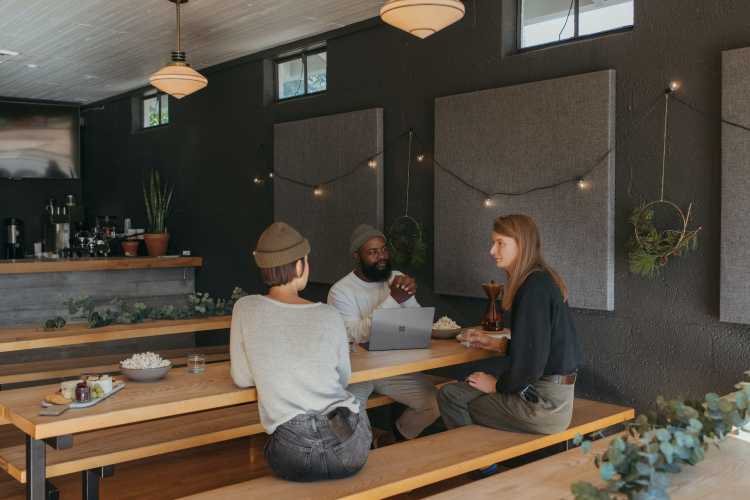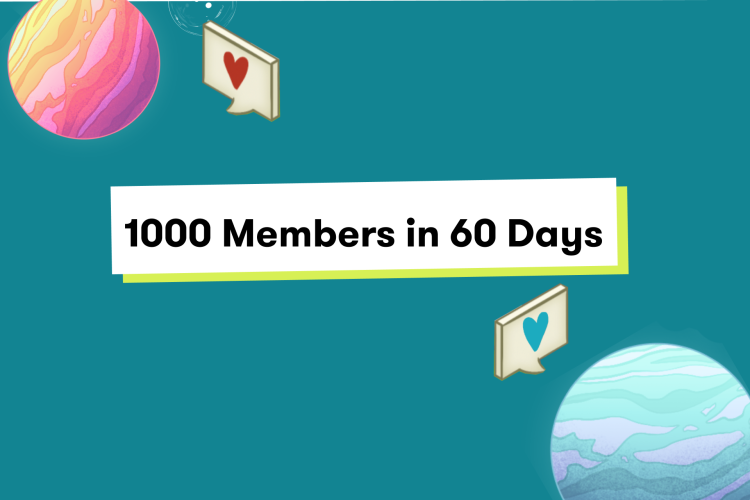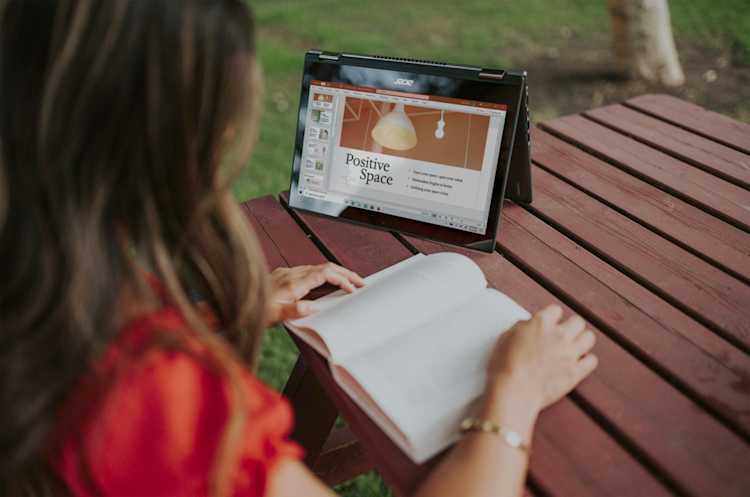Communities & Memberships
These Are the 10 Major Disadvantages of Facebook Groups
If you’re wondering if Facebook is the right place to build a community, here are some disadvantages to Facebook Groups you should know about first.
Author
Mighty Team
Last Updated
October 23, 2025

So you’ve got something important to start, you want to get a group of people together for some reason, and you’ve probably come to the same conclusion a lot of people do:
“Hey, we could start a Facebook group!”
After all, Facebook groups are free, a lot of people have a Facebook account, and it’s tempting to think that you could pretty easily get a thriving community together.
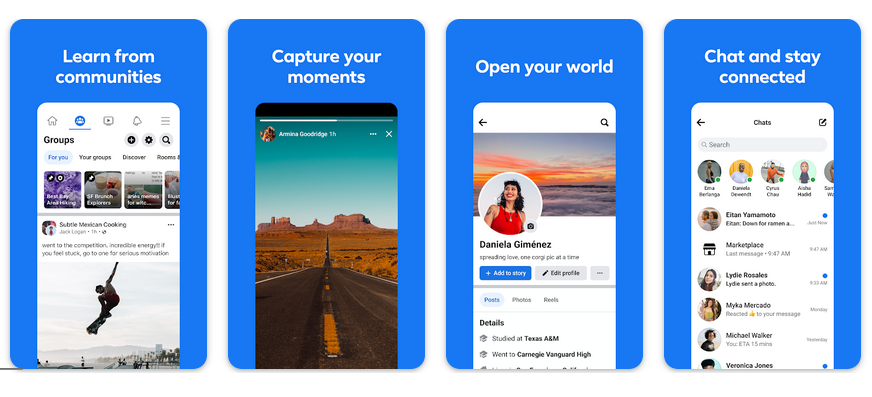
A lot of people go through this thought process and launch the group, but they realize pretty quickly that Facebook groups have some issues for just about anything you’d want to do with them. And many end up deleting that Facebook Group.
In this post, we’re going to talk about the disadvantages of a Facebook group for hosting any kind of online community. We'll also share some features that true membership site platforms have, which make them a way better option!
Launch a membership business on a Facebook Groups alternative you can charge for! It takes 10 minutes to start...
10 Major Disadvantages of Facebook Groups
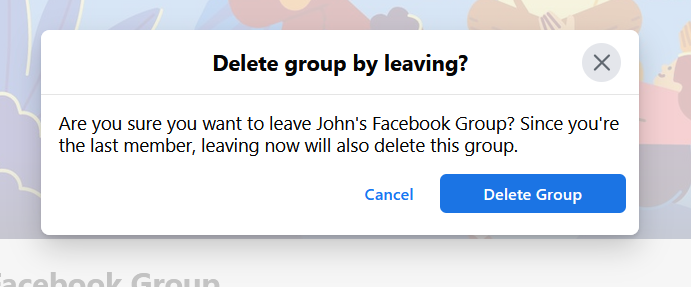
1. The algorithm
Many creators or community leaders have shared a link to their Facebook group on social media and watched as people flooded in.
10 members. 15 members. 100 members. It’s so exciting to watch a group grow!
And then they hit publish on their first post: “Welcome to the group! Introduce yourselves and tell us all why you’re here!”
And nothing happens. No likes. No comments. No happy people saying, “Hey, thanks! We’re glad to be here!”
Just crickets.
A lot of creators would blame themselves at this point, but they shouldn’t. Chances are, the lack of engagement isn’t their fault. It’s the algorithm.
When you create your content in a Facebook group, people often just don’t see it. This is in part because of the notification system that we’ll talk about below. But it’s also because you’re fighting with the Facebook algorithm that only has one goal: show your members as many ads as it possibly can without having them abandon the platform.
2. The distractions
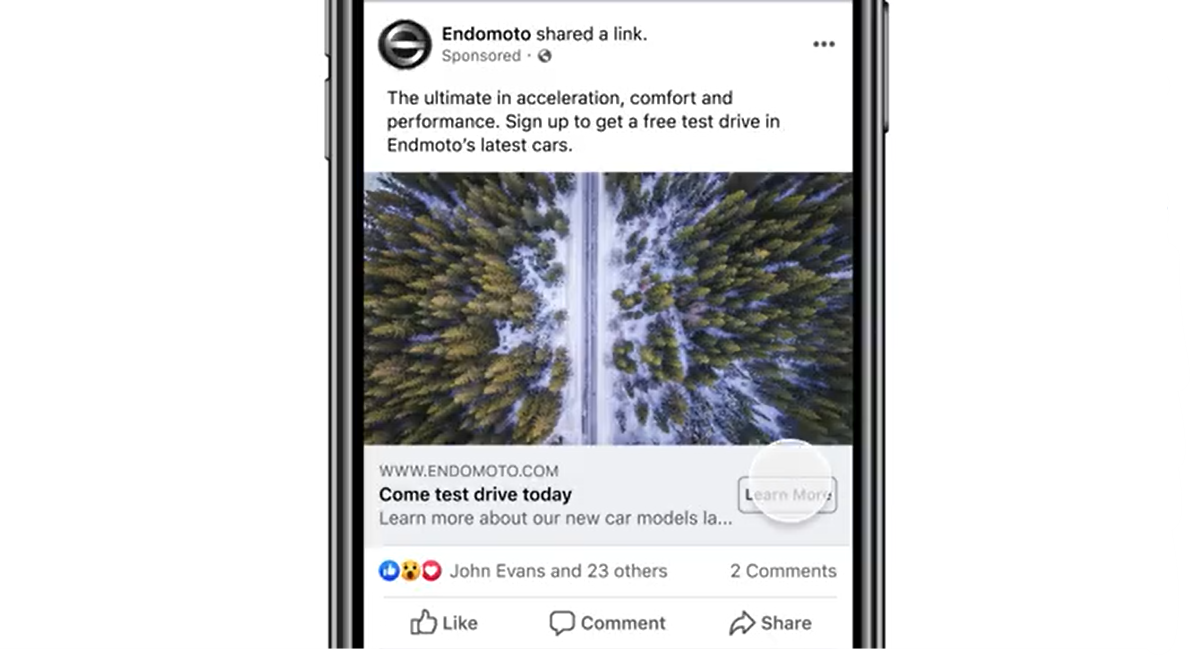
You’re trying to create a Facebook group for people to enjoy. And, in theory, they’d love your posts.
But they also love the funny GIFs, the videos, the “Which Disney princess are you?” quizzes, and the pics of their ex with their new SO on vacation (ok, maybe they don't LOVE those).
This is Facebook. There’s a lot happening. And, as we already mentioned above, to top off all the distractions, Facebook monetizes your members’ news feeds by plugging them full of all the ads they can possibly handle.
How is this a place where people are going to have the bandwidth to focus on being members of a group?
It’s way better to grow your group in a place where your members come specifically to interact with your content, and not one where you have to hope they stumble on it.
So, you’ll fix it with mods. But wait. It’s hard to use moderators on Facebook. Moderators can’t really find comments, there’s only a really basic keyword filter–not advanced moderation tools. And so, whether you’re doing your own community moderation or whether someone else is doing it, it’s exhausting. And this is just keeping up with content. How about mass bot raids, huge numbers of fake accounts requesting to join.
It’s exhausting. And yes, distracting. And Facebook doesn’t have the tools to deal with this.
3. The lack of monetization
If you're joining the creator economy, it's really nice to earn off your work. Real community platforms let you build amazing businesses that sell memberships, events, courses, and more.
Facebook makes monetization almost impossible--at least natively. While there are a few features like "paid online events" and subscriptions, they really haven't taken off in a way that rewards creators.
On the other hand, a community platform creates a private social network that lets you build a real recurring revenue business around your passion.
4. The limited features
Another disadvantage of using Facebook Groups is that a Facebook group is basically just a shared Facebook wall. You can post content, create polls, and even live stream. But compared to major community platforms, that isn’t much.
The best alternatives to Facebook Groups will let you build thriving communities with sub-discussions, tons of options for engagement and membership, hosting virtual events, and even teaching an online course if it’s your jam.
5. The notification systems
This is connected to the algorithm. But the notification system in Facebook Groups is tough to balance. Unlike communities built for a specific purpose, where your members log on BECAUSE they want to see news from the community, a Facebook Group is one of many things on your users’ feed.
This means that for some, there will be too many notifications. For others, there won’t be enough.
Users can choose their level of notification. But, by default, they’ll only see highlights. This means Facebook chooses what to show them.
If your users are in 20 groups (which a lot of people are), Facebook will decide when they get notified about yours.
Try Our Community Name Generator
Our AI engine is here to help you create a community name that feels like magic. Just share a few words about who your community is for and we’ll get to work.
Examples: coaching clients, meditation novices, vegan chefs, dog lovers, aspiring entrepreneurs, etc.
The names generated by Mighty Co-Host™ are examples only and may be used by other businesses or subject to third-party rights. For more information, check our Terms
6. The privacy issues
Even if you can get past the stuff above, one of the biggest disadvantages to Facebook Groups, that’s becoming more of an issue with each passing year, is the privacy issue. After it was discovered that Facebook was being used for disinformation in an attempt to sway election campaigns, people were understandably upset.
After everything from disinformation to whistleblowers talking about the negative effects of the platform, more and more people are boycotting Facebook.
If you’re trying to bring members together, and you’ve got a platform that people refuse to use, that’s a huge disadvantage. Even if 5% of your members refused to join because a community was on Facebook, would it be worth it to lose those people–especially when there are much better alternatives?
7. The lack of branding options
So you launched your Facebook group, and you’ve added your image or logo to the profile pic and an image at the top.
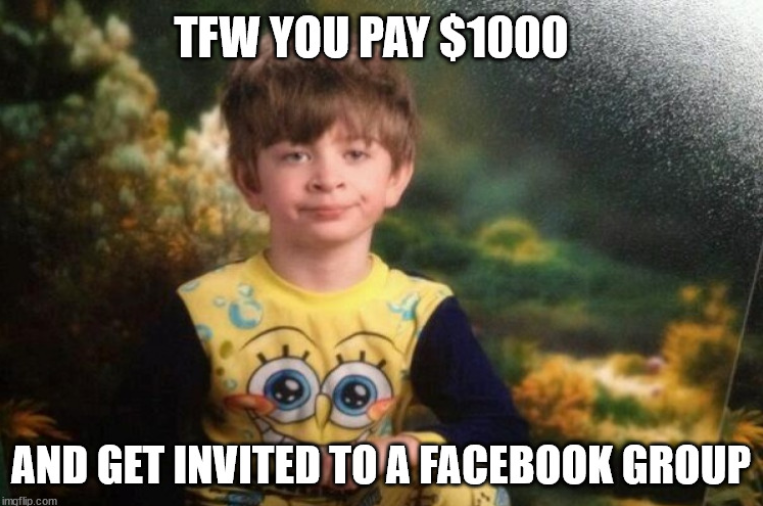
Congratulations, you’re done branding your group. And it still looks like… well… every other Facebook page and group.
While it might not be a dealbreaker to some people, the ability to add your own custom branding to a group you host is really nice to have. This is even more important if you’re a business and you’re trying to build a customer community that fits your brand.
Here's what a branded community looks like on a community platform:
8. Lack of ownership
At the end of the day, when you build a group on Facebook, you don’t own it. If you get hacked, you’re out of luck. If Facebook decides to shut you down or change its rules, you’re at their mercy.
And way too many people have spent a lot of time building something on platforms like Facebook only to find themselves thrown out because of a hack, then trying desperately to get their access back.
And those members you’re bringing to Facebook? They do make someone money. Facebook! Although the platform claims to be “free”, there ain’t nothing free. Facebook sells the attention of you and your members to advertisers–so they earn from the content you create and the interest you generate.
9. Not searchable
Have you ever tried finding old content in a Facebook Group? It's almost impossible. The cascading posts with a too-limited search function means that it's really hard to find old posts, conversations, or even posts by keyword.
10. Not search-engine friendly
Finally, your Facebook group won’t show up in search engines. This might not be a big deal to people who are searching for a place for an existing community or running a closed membership group.
But if you’re trying to grow your group and add members it’s pretty annoying that people can’t even find your group by searching for it.
Try the Facebook Group alternative that lets you build a powerhouse community business!
Pros and Cons of Facebook Groups
Pros
Some basic analytics features
Free platform
Lots of people have it already
Good native mobile apps
Cons
Fighting the algorithm
Limited features
Too many distractions
Poor notification systems
Privacy issues
Lack of branding options
Lack of ownership
Not searchable in search engines
Why membership sites are a better option
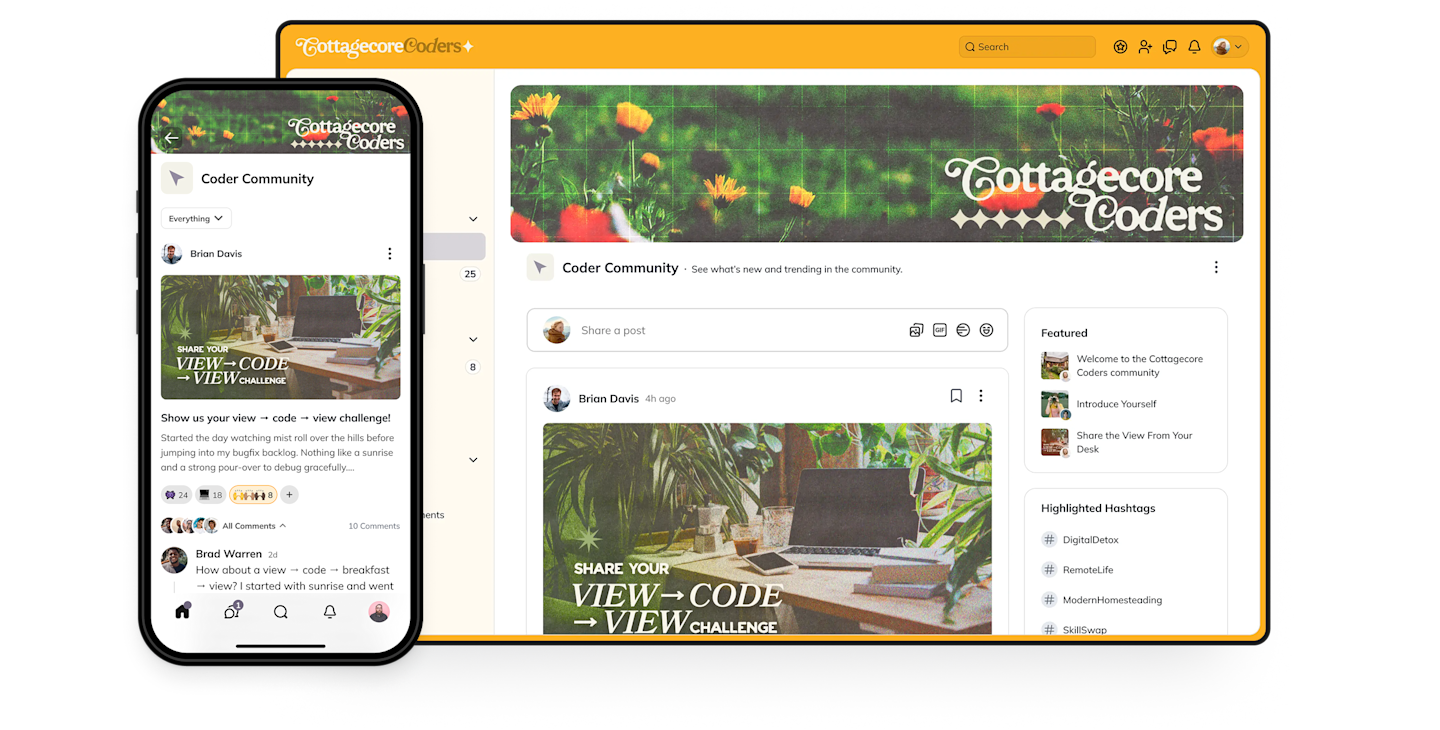
Membership sites can solve the problems Facebook Groups create, letting you not only reach your members, but also build a thriving business around your brand!
Here are some of the things a dedicated community site will give you that Facebook won't:
Branding options: You should be building your own brand, not Facebook's. When you build a private social network, you can. Some platforms even give you your own branded apps.
Better content organization: The Facebook wall is a terrible way to engage with content. A running list of posts is hardly good for community engagement. The right community platform should have a Discovery Feed to show you different types of content and organize posts.
Better member connections: On Facebook, connections between members are limited to comments and messaging (with Facebook's DM). Real member engagement comes when you add different ways for members to connect: member profiles, "members near you," connection suggestions, and more.
A business platform: A platform that lets you run a community business lets you charge for membership, build bundles, sell in different ways, and easily see what's working and what isn't. Facebook isn't the place to build a real community business.
Conclusion
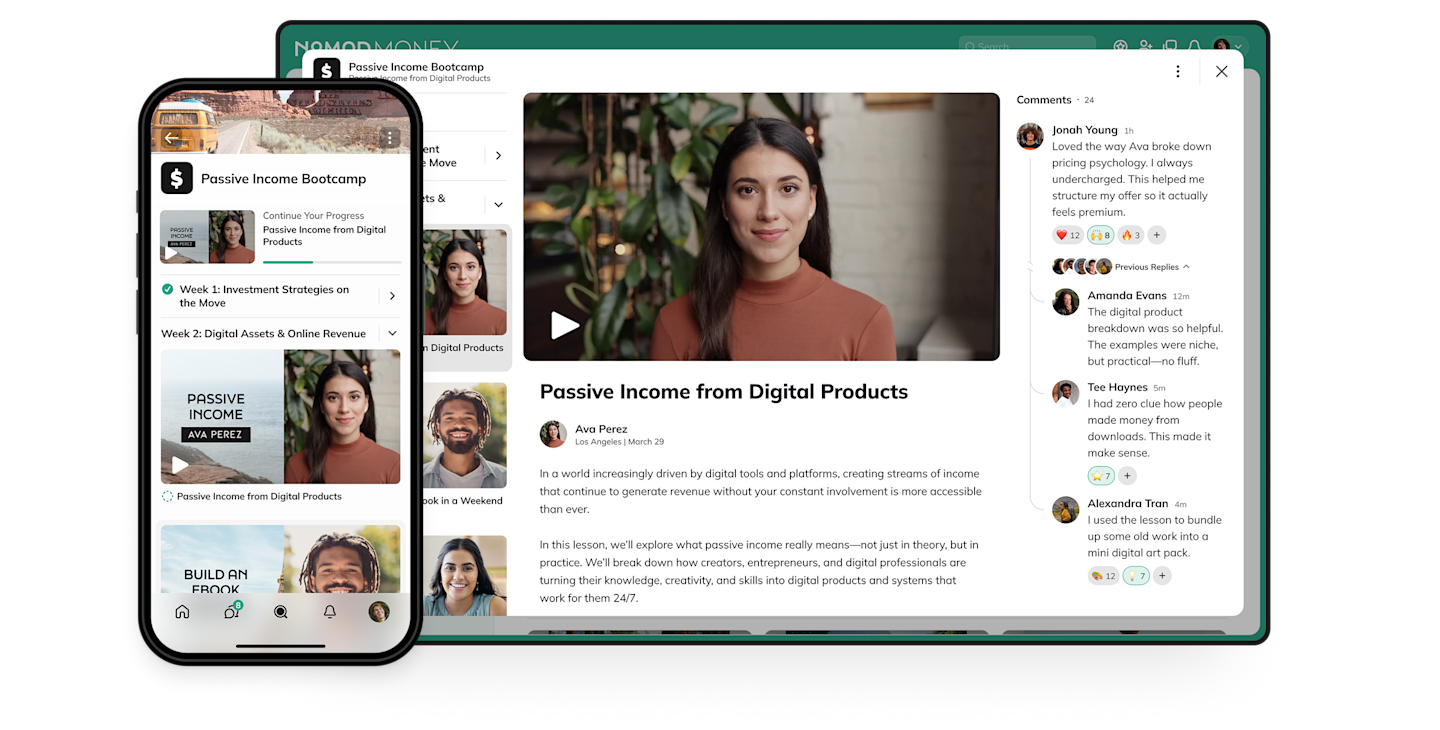
While the free price tag on Facebook Groups is tempting, that comes at a cost. In this case, the cost is less member engagement, less privacy, and some users who won’t join because of it.
That means that the disadvantages of Facebook Groups outweigh the advantages for many groups looking for a home. If you’re looking for a better alternative, we’ve created an elegant, white-label membership site platform that lets you do everything Facebook does and more.
If you are ready to delete your Facebook group and do more with your community,come try Mighty!
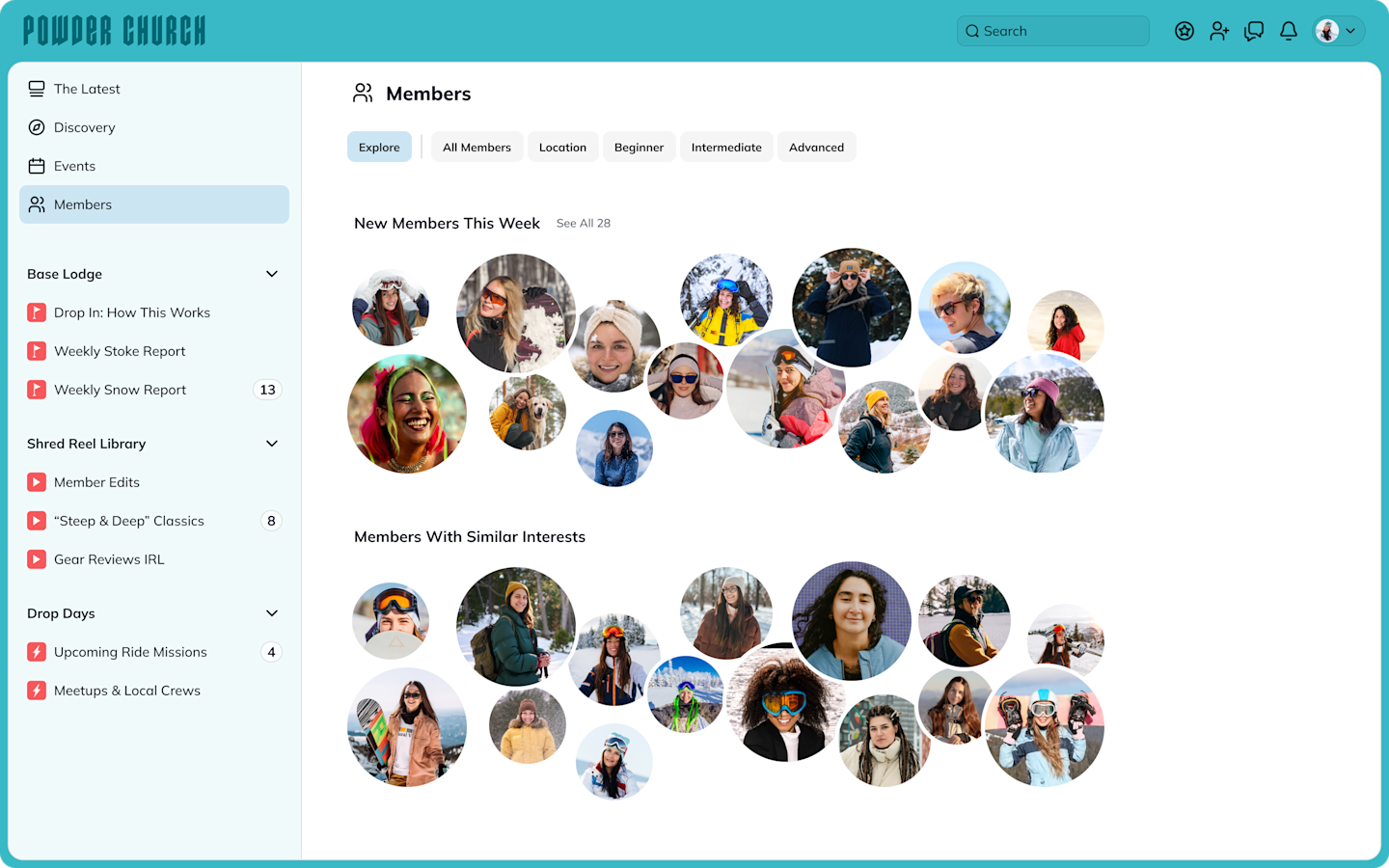
It gives you an amazing, brandable, and PRIVATE community space for your members, and you can post every type of media, live stream, host integrated events, teach a course, and charge for admission if you want.
FAQs
1. Is it better to have a private or public Facebook group?
Here’s how to choose.
Choose private if…
You want to talk about sensitive topics or host exclusive content.
You’re charging members to join (although you should choose a community platform instead).
You don’t want posts to appear in search engine results or the feeds of non-members.
You want the Facebook group to feel exclusive and/or safe.
Choose public if…
You want to build a brand, get as many people in as you can, and be discovered.
You want members to be able to join without approval.
You want your content to show up in search engines.
You want quick growth, and are okay that this might mean more spam.
2. What's the difference between a Facebook page and Facebook group - which is better?
Here’s how to make the decision…
Choose a Facebook group for:
More discussions and interactions between members (although there’s not much more).
Controlling who comes in (members request to join).
Making sure posts don’t appear to non-members.
Choose a Facebook page for:
Building a brand or presence that people can discover with SEO visibility.
Letting anyone join, like, and follow a page without approval.
Making sure your content can be seen by everyone, even those not currently following the page.
Of course, as we’ve said in this article, building on Facebook has serious disadvantages in general–most of these apply to both groups and pages. But many brands and businesses choose to have a Facebook page for visibility and credibility.
3. Are there legal or GDPR risks in keeping sensitive discussions inside Facebook’s ecosystem?
Technically, yes. Facebook is not inherently GDPR compliant. While they have made strides in making it easier for users to be GDPR compliant, the platform isn’t always fully transparent about how it uses data. This means it is up to users to make sure conversations and data happen in a GDPR-compliant manner. There’s no guarantee that sensitive discussions in a Facebook group will never become an issue for GDPR compliance.
If you are hosting sensitive discussions–especially relating to health, finance, legal matters, or even sharing personal information–it’s always best to do this on a private platform, and not Facebook.
4. Can I charge membership fees or sell digital products directly inside a Facebook Group?
The answer is, not really. While it is technically possible to monetize a page on Facebook by adding a membership, it will work for .001% of Facebook users. If you have a page with 50,000 post engagements, or 180,000 watch minutes, you can create a private group for paid subscribers.
For most of us mere mortals, this won’t work. Actually, even if you did qualify for this, it still wouldn’t be the right choice.
Most people who use Facebook need to use one or more third-party platforms to make it work:
A Stripe or Paypal account to collect payments.
Some way to invite paid members into a private group (e.g. email?)
But this still won’t let you do bundling or tiered payment.
As far as selling digital products, it’s a bit easier to do because you can link a Facebook group to a Facebook page. But even though a page lets you post products to sell, it won’t fulfill digital products. You’ll still need a third-party solution for that.
It’s honestly a much better option to just build somewhere that lets you do all this at once: collect money, post products, and deliver them, all alongside a great community. That’s what the best Facebook group alternatives let you do.
5. How do I stop spam bots or fake accounts from infiltrating a large Group?
Step 1. Make the group private. This reduces a lot of spam right away.
Step 2. Create challenge questions for members (you can set this up when you make the group private).
Step 3. Set it so that new members' posts require admin approval. This creates an extra barrier to spam. And frankly, in many cases, this makes it less likely people will post spam to begin with.
6. What analytics are not available in Facebook Group Insights that most community platforms provide?
Insights are available for Facebook groups that have more than 50 members. They will give you some basic insights into your top contributors, when members engage, what content they engage with, and how many members have joined.
While these basic statistics are nice to have, they are just that: basic.
Here’s why you get much better insights from analytics of a dedicated community platform:
You get more detailed data on where members spend time and behaviour, and it’s relevant to each Space in a community. This helps you understand how members move through your content.
You get integrated business analytics. Since Facebook doesn’t have the built-in monetization, any data you collect is unrelated to your point-of-sale data.
You get data for each type of product or experience, like courses, livestream, or messaging.
You can track members by plan, renewal, payment dates, etc.
You can track an ambassador or affiliate program to understand how referrals and growth are working.
Want to learn more? Check out what else you get with Mighty Insights™.
7. How often has Facebook changed its Group algorithm, and how did it impact organic reach?
Facebook has completed major updates over the years, and it seems each one hurts groups more. The most recent one in 2024, updated user feeds with more content from people they don’t know, making it more of an interest-based social media platform. This means even less likelihood people will see your posts–especially if you are hoping to reach existing group members.
You can encourage members to turn on all notifications in their group settings–this increases the chance of them seeing posts.
8. Which alternatives give me full ownership of member data and direct control over notifications?
Mighty Networks is a great option for this! It’s G2’s top-rated community platform that gives you a ton of control over member data. You own all your member data in a Mighty Network. And there’s also full control over the notifications you get–both on web, email, and in the app.
Ready to start building your community?
Start a free 14-day trial to explore Mighty—no credit card required.
More like this
Join Mighty Community
Learn the principles of Community Design™ (and see them in action) alongside thousands of creators and entrepreneurs. It's free to join!

Online Courses
Creating a Course
Teaching a Course
Course Platforms
Selling a Course
Communities & Memberships
Community Platforms
Managing a Community
Building a Community
Growing a Community
Monetizing a Community
Content Creation
Creators & Entrepreneurs
Monetization
Content Creation
Starting a Business
Website Builders
Creating & Managing a Website
Events
Event Platforms
Hosting & Marketing Events
Branded Apps
Creating a Mobile App
Coaching Apps
Community Apps
Coaching
Mastermind Groups
Starting a Coaching Business
Coaching Platforms
Filter by Category
Online Courses
Communities & Memberships
Creators & Entrepreneurs
Events
Branded Apps
Coaching
Start your free trial
14 Days. No Credit Card Required.


